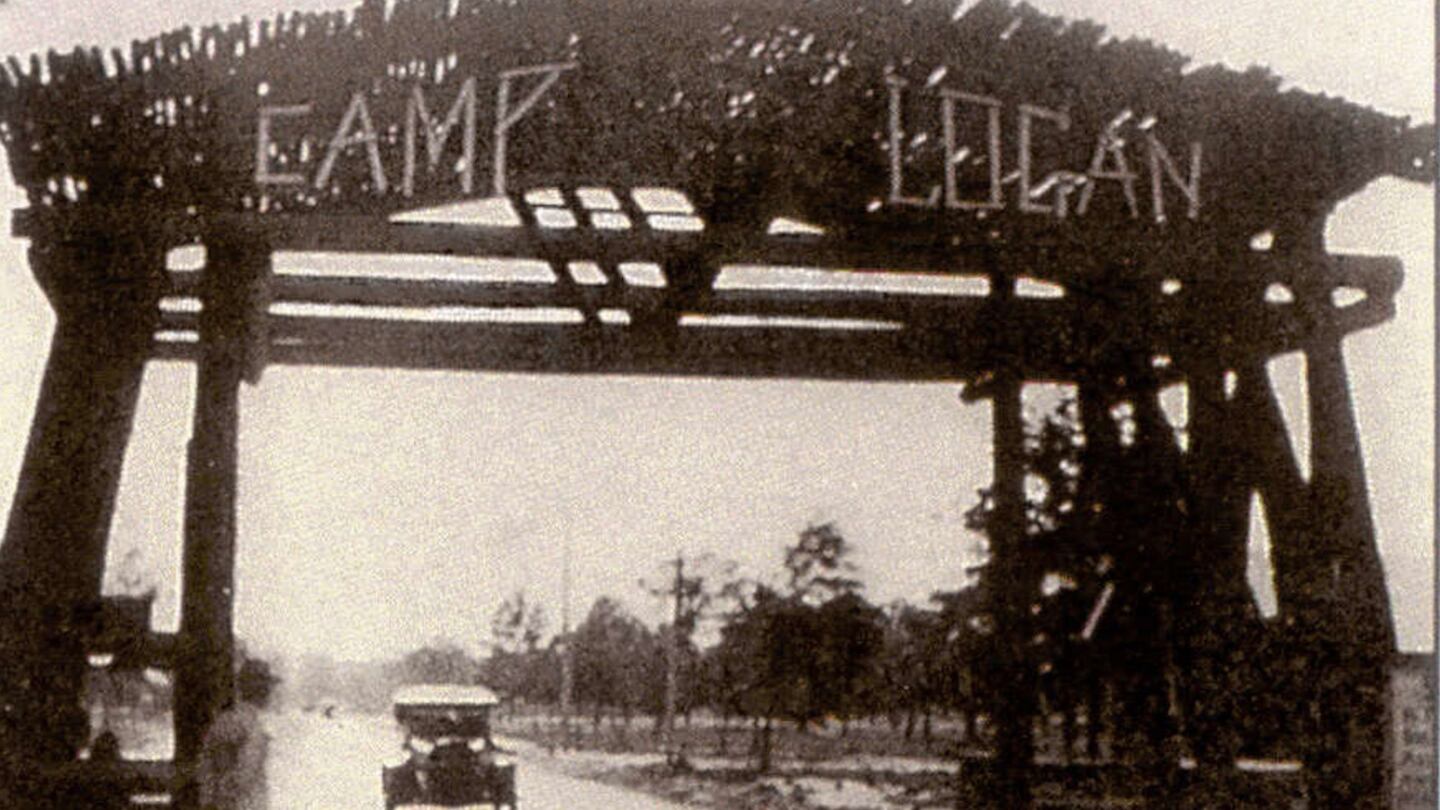HOUSTON — The U.S. Army is overturning the convictions of 110 Black soldiers -- 19 of whom were executed -- after they were found guilty of murder, mutiny and assault after a riot during the summer of 1917.
Deputy Secretary of the Army Michael Mahoney directed the Army Review Boards Agency to “set aside” the convictions of all soldiers from the 3rd Battalion, U.S. 24th Infantry Regiment, the Houston Chronicle reported. The records of the soldiers who were assigned to protect Camp Logan outside of Houston will now reflect that they served honorably.
The moves will be recognized in a ceremony on Monday at the Buffalo Soldiers National Museum in Houston, according to the newspaper.
More than a century has passed since 110 Black soldiers stationed at Camp Logan were convicted of mutiny, murder and assault in the 1917 Houston Riot, with 19 of them executed at Fort Sam Houston.
— Houston Chronicle (@HoustonChron) November 12, 2023
Now those convictions have been overturned. ⬇️ https://t.co/Uj7O4Bwls4
The soldiers were convicted of mutiny, murder and assault, the Chronicle reported.
“It can’t bring them back, but it gives them peace,” Angela Holder, whose great-uncle, Cpl. Jesse Moore, was one of the executed soldiers, told the Chronicle. “Their souls are at peace.”
The decision, reached weeks ago by Army Secretary Christine Wormuth, restores each of the soldiers’ individual rights, privileges and properties lost, meaning that their descendants may now be eligible for benefits, the newspaper reported.
According to the Texas State Historical Association, the Black soldiers were assigned to protect Camp Logan, a 7-acre training base, after the United States declared war on Germany in the spring of 1917. On July 17, 1917, the Black soldiers were ordered to travel by train with seven white officers from the regimental encampment at Columbus, New Mexico, to Houston.
On Aug. 23, 1917, Camp Logan soldiers clashed with whites, according to the Chronicle. The disturbance resulted in the deaths of 17 people, including five police officers. Most of them were whites.
Around noon that day, Houston police officers Lee Sparks and Rufus H. Daniels arrested a Black soldier for allegedly interfering with their arrest of a Black woman who was at a game of craps, according to the TSHA.
When Cpl. Charles Baltimore, one of the 12 Black military police officers in the battalion, asked about the soldier’s arrest, words were exchanged and the MP was allegedly struck over the head. Baltimore was taken to police headquarters, but a rumor soon reached Camp Logan that he had been killed, the TSHA reported.
Baltimore returned to the camp but was bloodied, according to the Chronicle. That night a shot rang out, and soldiers grabbed their rifles and set up a defensive perimeter around the camp. Sgt. Vida Henry ordered the soldiers to march out of the camp in formation, the newspaper reported.
According to the nonprofit Equal Justice Initiative’s version of the incident, more than 150 Black soldiers left the camp and approached the Houston city limits to confront the police. Although they planned a peaceful march to the police station, the soldiers encountered a mob of white men.
The Black soldiers killed 15 whites, including four police officers, and seriously wounded 12 others. One of those wounded, an officer, later died, according to the TSHA.
Henry was later found dead, the Chronicle reported. Pvt. Bryant Watson, Pvt. Wiley Strong and Pvt. George Bevens also were killed.
Houston was placed under martial law the next day.
Jason Holt, a New Jersey lawyer and descendant of Pfc. Thomas C. Hawkins, one of the executed soldiers, told the Chronicle that sending Black troops to a Southern town was comparable to waving a red flag.
“The country was still in the throes of the Jim Crow era and not many years post-slavery,” Holt told the newspaper. “With T.C. Hawkins, there’s conflicting testimony as to where he was and what happened during the course of the incident. I’m not suggesting that there was the appropriate amount of fairness with any of the soldiers.”
Between Nov. 1, 1917, and March 26, 1918, the Army held three separate court-martials at Fort Sam Houston in San Antonio, according to the TSHA. Military tribunals indicted 118 enlisted men from the battalion and found 110 of them guilty.
Within 12 hours of Maj. Gen. John Ruckman’s sentencing in 1917, 13 soldiers were hanged, the Chronicle reported. By September 1918, six more soldiers were executed.
In addition, 63 soldiers were sentenced to life in prison in federal courts.
Two white officers who faced court martial were released, according to the TSHA.
The reversal is unique in the Army’s history.
“This is not only the largest murder trial in American history, this is also the largest court-martial in American history, and no case this large or this serious with this many death penalties has ever been completely overturned by the Army on review,” historian John Haymond told the Chronicle. “In legal terms, you would say this case is sui generis, meaning that it stands alone. It is truly unique.
“This is the Army recognizing it’s never too late to do the right thing and correcting its error of the past.”






